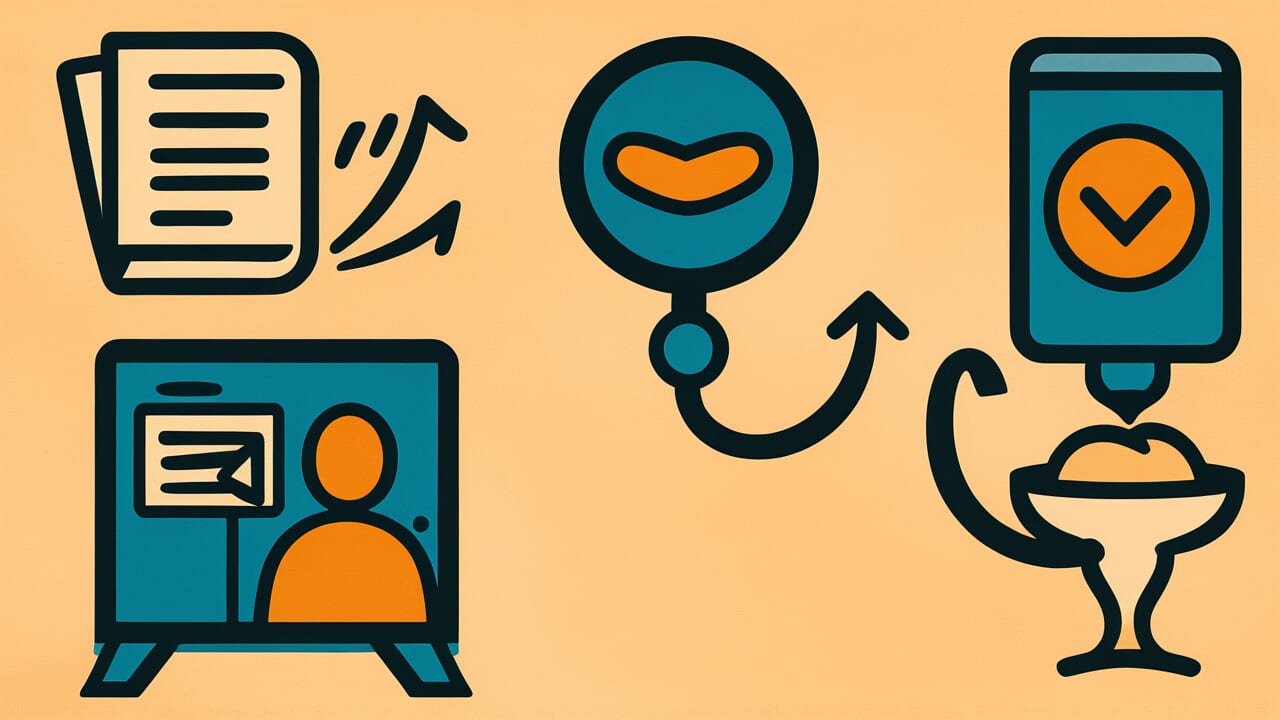How to Read “If one is good, then two more”
Hitotsu yokereba mata futatsu
Meaning of “If one is good, then two more”
This proverb reveals the endless nature of human desire. Even when one wish comes true and you should feel satisfied, another want appears immediately.
Then another follows, creating a chain of desires that never stops.
People use this saying when someone keeps increasing their demands. It also applies when reflecting on one’s own greed.
For example, someone gets promoted but immediately starts aiming for the next position. Or you buy one thing and suddenly want more and more items.
The expression uses the simple progression of numbers to show human nature clearly. Counting one, two, three symbolizes the endless chain of desires.
Even in modern society, we constantly seek new things despite material abundance. Our behavior perfectly matches what this proverb describes.
It remains a relevant warning about the limitless nature of desire.
Origin and Etymology
No clear written records explain the origin of this proverb. However, the structure of the phrase offers interesting insights.
“If one is good, then two more” uses number progression to express human psychology cleverly. Counting one, two visually shows how desires keep emerging.
This counting method suggests an endless chain.
Japan has long valued the concept of “knowing enough.” Buddhism influenced this teaching that warns against excessive desire.
This proverb likely emerged from that cultural background. People observed how one fulfilled wish immediately creates another wish in daily life.
They expressed this observation in simple words.
The use of “yokereba” (if good) is particularly interesting. It doesn’t just mean “if obtained” but includes a sense of satisfaction.
This sharply points out the contradiction in human psychology. We feel satisfied, yet more desire arises.
The proverb shows accurate understanding of human nature born from observing common people’s lives.
Usage Examples
- I bought a new smartphone with my bonus, and now I want a tablet too—if one is good, then two more
- He just became department head but already aims for executive position—this is exactly if one is good, then two more
Universal Wisdom
“If one is good, then two more” reveals a fundamental quality of human existence. Why can’t we feel satisfied?
Because humans can always imagine “a better state.”
When one wish comes true, new horizons open in our hearts. We see possibilities that were invisible before.
This isn’t entirely bad. Humanity has progressed because of this “unsatisfied heart.”
However, this same quality places us in eternal thirst.
Our ancestors understood this human essence. They knew that no matter how much wealth or status people gain, a craving for “next” lurks deep inside.
This proverb has been passed down because human psychology doesn’t change with time.
Interestingly, this proverb isn’t simple criticism. Rather, it shows deep understanding of humanity.
Having desires is human nature itself. We cannot completely deny it.
But by becoming aware of this quality, we gain wisdom to understand and control ourselves better.
When AI Hears This
The moment someone achieves their first success, interesting calculations begin in the human brain. When gamblers win once and think “just one more time,” it happens for a reason.
The time and money spent reaching that first win gets stored as an “investment.” Stopping now feels like wasting that victory.
Behavioral economics experiments show people feel the pain of losing 100 yen about twice as strongly as the joy of gaining 100 yen.
Someone who obtained the first thing perceives not trying for the second as “loss of potential profit.” Not challenging itself feels like a loss.
More noteworthy is how the first success creates an illusion of “having luck.” Statistically, each attempt is independent.
Yet the brain mistakenly sees causation between previous success and next success. Casino players on “winning streaks” become bolder for this reason.
The essence of this proverb points out that humans use “what they already have” as their baseline. They extremely dislike retreating from there.
The moment you gain one thing, “having one” becomes the new baseline instead of zero. Not aiming for the second feels like loss.
This cognitive trap ultimately drives behavior that risks losing even the first thing.
Lessons for Today
This proverb teaches modern people how to deal wisely with desire. The key isn’t denying desire itself but understanding its nature.
When you obtain something and immediately want the next thing, that’s a natural human response. You don’t need to blame yourself.
Just pause and think. Do you really need it, or is it simply your mind’s habit of seeking “next”?
Modern society skillfully exploits this human quality. Advertising and marketing constantly present “next” to stimulate our desires.
Therefore, becoming aware of your desire patterns leads to wiser living.
As a practical method, I recommend having “gratitude time” when you obtain something. Instead of immediately seeking next, spend time appreciating what you have.
This is small wisdom that breaks the chain of desire.
We cannot change human nature. But by knowing that nature, we can live more satisfying lives.



Comments